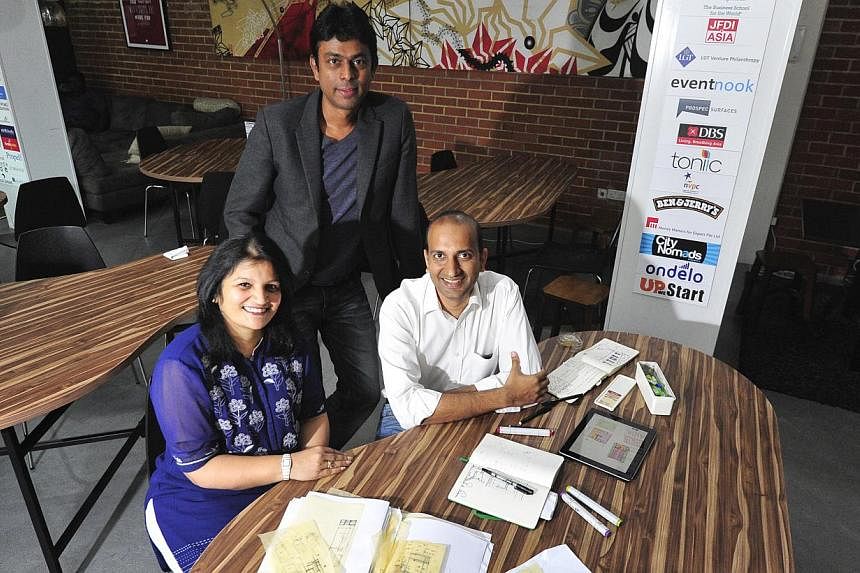As a successful architect, Mr Prasoon Kumar has designed more than 10,000 homes around the world over 10 years, from India and Hong Kong to the Philippines and the United States.

But the 37-year-old's professional accomplishments did little to dispel a nagging sense of unease that he had done little to solve a growing problem that he saw in many cities: homelessness.
"Each one of these houses was bought by a person who already had a home," said the India-born father of two sons who now lives in Singapore. "My projects were becoming more and more expensive and high-end, and there was more and more wealth, but the number of people living in slums and on the streets was not going down."
Then, in 2009, Mr Kumar laid what would be the first brick of his dream.
At a conference in Manila on social housing he heard Mumbai being cited as a good model for slum rehabilitation, where redevelopers buying land occupied by slums were taking responsibility for rehousing their dwellers in apartments for free.
But Mr Kumar felt this solution was incomplete and unsustainable. "Mumbai has about 10 million people living in slums. If we were to rehabilitate them in conventional housing, the amount of resources it requires not only to build, but to maintain the homes, and to service them with electricity and water, is humongous."
Using his training in architecture as well as urban and environmental planning, he began to search for an approach that was more holistic and sustainable.
The answer, he saw, lay not only in building homes for the homeless, but also in giving them opportunities to improve their social and economic situation.
The result was Billion Bricks, a Singapore-based non-profit organisation that aims to end the global problem of homelessness by housing those on the streets, and, where possible, providing them tools such as education, job training and job opportunities.
This approach has won Mr Kumar strong support.
At a boot camp for social entrepreneurs in July last year, a judging panel awarded him $5,000 in aid after hearing his pitch. Two founding trustees joined in later with financial support.
"When I watch talent programmes in India, I don't see any kids that come from rich families," says one of them, Mr Anurag Srivastava, 47. "All that talent and potential have not been unlocked. Once they get a home, they've got a launching pad."
A month after the boot camp, Mr Kumar quit his job of 12 years to set up Billion Bricks, and began approaching non-governmental organisations (NGOs) to see how his team's expertise in architecture and urban planning could complement their efforts.
Last November, Billion Bricks embarked on its first project - a shelter for about 100 street children in Mumbai. Together with Indian non-profit NGO Salaam Baalak Trust, it is turning an abandoned building donated by the Municipal Corporation of Greater Mumbai into a shelter for the children. When completed, it will house the vagrants and also run daycare activities and workshops.
"Our focus is on people who can't even afford to live in slums. Those are the real homeless," stresses Mr Kumar. Now the chief executive of Billion Bricks, he has a small team of just over 10 staff and volunteers to raise funds for the projects, contribute design plans and ensure that the buildings are safe and of good quality.
In May, they teamed up with non-profit groups Solutions to End Poverty (Step) and Pour un Sourire d'Enfant to build a village for about 160 homeless families in Phnom Penh, Cambodia. Designed like a campus, the facility will train adults for high-skilled jobs and also school their children. Other projects include an orphanage in Kerala, India, and a school for the children of migrant workers in Sabah, Malaysia.
The next goal for Mr Kumar and his team is to find out how their projects can be scaled up and replicated elsewhere.
Says co-founder Mr Srivastava: "The idea of Billion Bricks - and not Million Bricks - came up because it's not a million bricks that can solve this problem. We need billions of bricks... We need millions and millions and millions of square feet."
And while Mr Kumar's quest for bricks and square feet may have begun, it is far from over.
"Nobody knows how to solve homelessness completely. We don't know as well," he says. "But that is something that we are striving towards."

